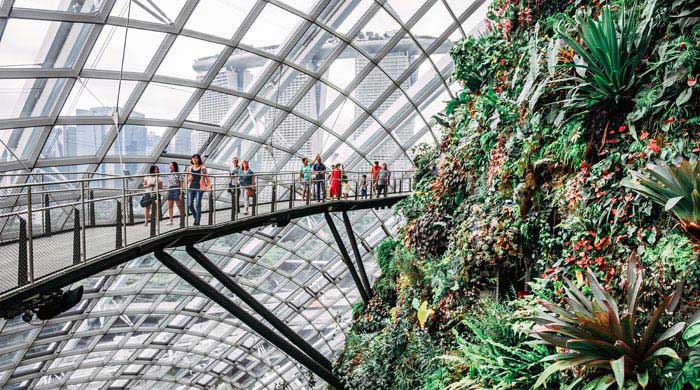Due to Singapore's history as a trading port British ships on their way to India, the city-state is a unique mixture various ethnic influences, both from Britain and from other Asian countries. Most relevantly, Chinese and Indian workers moved to Singapore to work at the harbor. Today, a mix of various languages, traditions and religious is prevalent all over the state. Thanks to this foreign influence, Singapore is now one the most diverse cultures in the world, and a mix of traditions and local customs, including Chinese, Malay, Indian and Western influences.
Singapore stands out for policies around multiculturalism, which are both a recognition of the city's demographic realities and something that shapes them. This includes the management of race, culture and religion.
Although there is freedom of religion, there are some exceptions. Singapore is home to many religious with an important relevance on the country: Islam (Malay), Hinduism (Indians), Buddhism, Taoism, and folk religion (Chinese), along with a substantial number of Christians of various denominations.
Whether Singapore follows the premises of multiculturalism or is actually a melting pot, the city-state is the combination of Asian and European cultures. Shaped by Malay, South Asian, East Asian and Eurasian cultures, Singapore has been described as a country where “East meets West.”
Multiracial and multi-religious harmony is the foundation of Singapore's progress and success, said President Tony Tan Keng Yam, who highlighted it is vital for Singaporeans to protect this multiculturalism.
“We cannot take multiracial peace for granted,” he said. “There is a big challenge for us in order to maintain our multiracial, multi-religious harmony, and we have to continue to work at it in order to promote understanding.”
Tan also mentioned his visit to the recently opened mosque Masjid Yusof Ishak at Woodlands, where he joined about 400 congregants for an iftar (breaking of fast) session.
He highlighted that the iftar event was “special” for him, since it was held in the mosque named after one of Singapore's presidents. “He is a strong promoter of multiculturalism and multiracial understanding. I think all of us can be inspired by his example. He embodied it and did a lot during his term of office to bring all the different races and faiths together,” said Tan.
He emphasized the mosque's key role in reaching out to other communities as well. He met with members of the Mosque Management Board and toured a heritage gallery highlighting the late president Softy Ishak's legacy. One of the galleries in the mosque chronicles the Rahmatan Lil Alamin Foundation and its projects.

